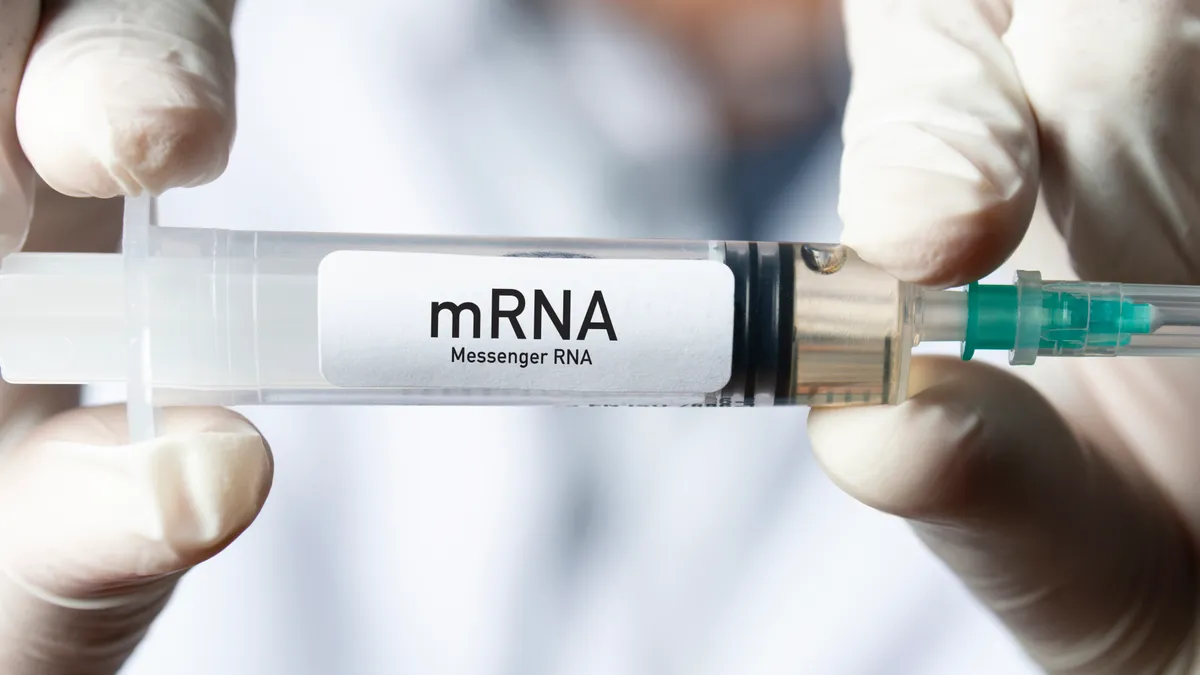Marcus Delatte spent over 10 years as a senior pharmacology and toxicology reviewer with the U.S. Food and Drug Administration (FDA). Today, he leverages his expertise to help small and mid-sized biotech companies develop scientific, technical and regulatory strategies at the specialized Clinical Research Organization (CRO) leader, Allucent. Here he discusses how and why he focuses his expertise on counseling smaller companies and mentoring the next generation of technical experts.
Can you tell us about your background and what motivates you to do the work you do?
I joined the FDA after completing my postdoctoral fellowship, which centered on using behavioral and physiological endpoints and imaging techniques to better understand the pharmacological and toxicological effects caused by acute and chronic drug use. While I enjoyed my work in the lab, I felt I could have a more profound impact working with the agency helping to develop and regulate medicines used to treat addiction and various central nervous system disorders. Now, on the drug development side, I’ve broadened my focus to help bring needed medicines to people with a wide variety of diseases and conditions.
I feel very fortunate to do what I do. It’s humbling to work to change and save lives, which is also part of why I’m motivated to help mentor the next generation of experts in this field.
What was your path to Allucent, and how does the time you spent at the FDA inform the work you’re doing now?
After the FDA, I joined my first CRO, where I gained some great experience. But the opportunity to be part of a company where I’d be working closely with small to mid-sized biotechs and their groundbreaking science, and have more direct access to resources, my team and senior leadership, was just right for me - that’s what drew me to Allucent.
At Allucent, I get to use the insights I gained during my 10+ years with the FDA to help smaller companies navigate the unique challenges they face due to their size, limited resources and/or the nature of their technology. For example, I’m able to help them understand the specific regulatory and technical requirements they need to meet because if they don’t have knowledge of these things from the outset, it can have negative repercussions down the road. From there, we create strategies that fit their goals and resources. I’m also able to counsel my clients about how and why to engage with the agency early and be transparent. This in turn paves the way to partner with the FDA to develop tailored approaches that can help smaller companies avoid pitfalls and operate successfully with tight budgets and limited resources.
What do you see as some of the biggest opportunities and challenges ahead for small and mid-sized biotechs?
Smaller companies are doing groundbreaking work, with the potential to address complex and difficult-to-treat conditions, and there’s a tremendous opportunity for their science to help people around the world. At the same time, this brings new challenges.
For example, for a lot of these newer therapies, there may not be relevant animal models, creating a need to use in vitro assays to understand safety, as well as modeling. Another challenge relates to the fact that the FDA remains short-staffed, so it’s going to be exceedingly important for sponsors to have very high-quality submissions and be prepared to help the agency understand their technology, the potential challenges that lie ahead for their programs and how they’re going to address them.
What are you most excited about as we kick off 2023?
I’m excited about tackling more complicated programs that leverage things like modeling and simulation to guide risk assessment and the selection of clinical doses. There’s a real opportunity to use innovative development approaches to help propel breakthrough science forward efficiently and effectively.
I’m also looking forward to continuing to mentor the next generation of technical experts – not only by working with my team but also through work I do with external organizations such as AAAS (the American Association for the Advancement of Science), ASPET (the American Society for Pharmacology and Experimental Therapeutics) and ACT (the American College of Toxicology), to name just a few. It’s gratifying to empower others and pay it forward to everyone who invested in me.
All in all, I feel very optimistic about what lies ahead and privileged to use my expertise to help my team, the larger scientific community and my biotech clients. Because at the end of the day, we’re all working to bring safe and effective new medicines to patients around the world – to help individuals in need, and society as a whole.








